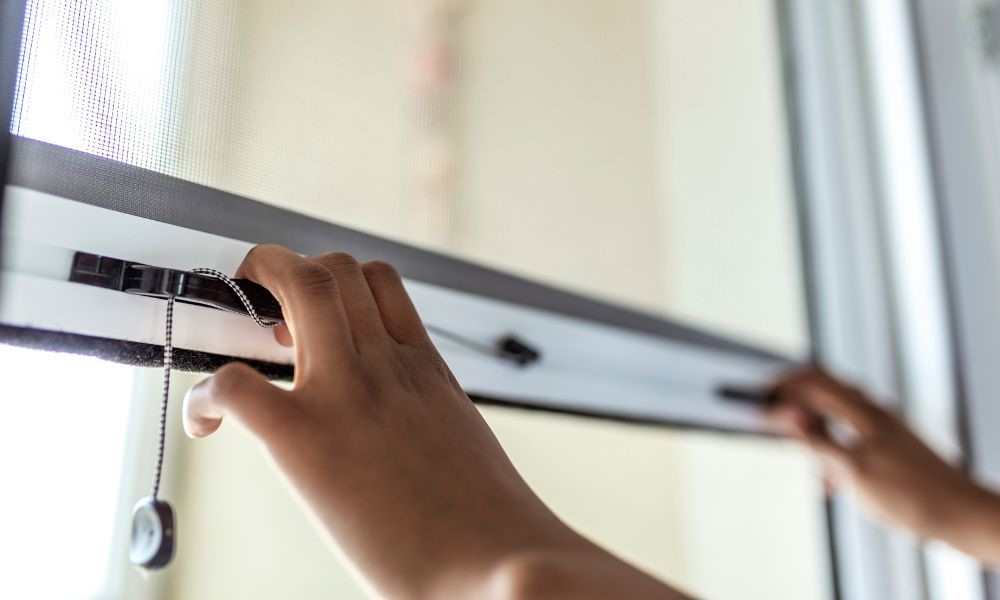
Phantom retractable screens have gained significant popularity as a versatile solution for homeowners seeking to seamlessly integrate indoor and outdoor living spaces. These screens, which retract out of sight when not needed, offer numerous benefits, including insect protection, enhanced ventilation, and increased privacy without permanently altering the aesthetics of a home. However, like any home improvement product, Santa Barbara phantom retractable screen doors also come with potential drawbacks that homeowners should carefully consider before making a purchase. This article delves into the potential demerits of phantom retractable screens, providing a comprehensive overview of the factors that might make them a less-than-ideal choice for some.
- Higher Initial Cost
One of the most significant deterrents for potential buyers of phantom retractable screens is their higher upfront cost compared to traditional fixed screen doors or windows. The sophisticated retractable mechanism, the quality of materials used to ensure durability and smooth operation, and the often-customized nature of the installation contribute to a premium price point. For homeowners on a tight budget, this initial investment can be substantial, potentially outweighing the long-term benefits and convenience offered by these screens.
- Potential for Mechanical Issues and Maintenance
The very mechanism that provides the convenience of retraction also introduces a level of mechanical complexity that is absent in fixed screens. Phantom retractable screens rely on springs, rollers, tracks, and sometimes motorized components for their operation. Over time, these parts can be subject to wear and tear, potentially leading to malfunctions such as screens not retracting smoothly, getting stuck, or failing to latch properly. While reputable manufacturers design their screens for durability, the presence of moving parts inherently increases the risk of mechanical issues compared to a static screen.
- Durability and Weather Resistance Concerns
While phantom retractable screens are designed to withstand typical weather conditions, they might be more susceptible to damage from extreme weather events compared to permanent enclosures like fixed screens or glass doors. Strong winds can potentially blow the screen mesh out of its tracks or even cause tears, especially if the screen is left extended during severe weather. Heavy snowfall or ice buildup can also hinder the retraction mechanism or damage the screen material.
- Security Limitations
It is important to note that phantom retractable screens are primarily designed for insect control and enhanced comfort, not for security. They offer minimal resistance against forced entry and should not be considered a substitute for security doors or other robust security measures. Some manufacturers even explicitly state that their retractable screen systems are not intended to provide security or retain individuals or pets. Homeowners with security concerns should consider additional security features for their doors and windows rather than relying on retractable screens for protection.
- Visibility and Aesthetic Impact
While the ability to retract the screen and maintain an unobstructed view is a key selling point, the screen mesh, when deployed, can still have a slight impact on visibility, especially with denser mesh options designed for increased privacy or insect protection against smaller pests. Some homeowners might find this subtle obstruction undesirable, particularly if they have invested in landscaping or enjoy a clear view of their surroundings.
Conclusion
Phantom retractable screens offer a compelling blend of functionality and aesthetics, providing insect protection and ventilation while maintaining unobstructed views when desired. However, potential buyers should be aware of the potential demerits associated with these systems. Ultimately, the decision of whether or not to invest in phantom retractable screens depends on individual needs, budget, lifestyle, and a thorough assessment of these potential drawbacks in relation to the advantages they offer.


:max_bytes(150000):strip_icc()/house-cleaning-schedule-for-every-day-3129149-06-b23eacd9ef3a41fc833c68e095b34c72.jpg)


More Stories
Permanent vs. Seasonal: Why Smart Employers Are Ditching the H-2B for the EB-3
Title: Why a Cleaning Planner Can Completely Transform Your Home Routine
Expert Guide to Fence Repair in Lakeland, FL